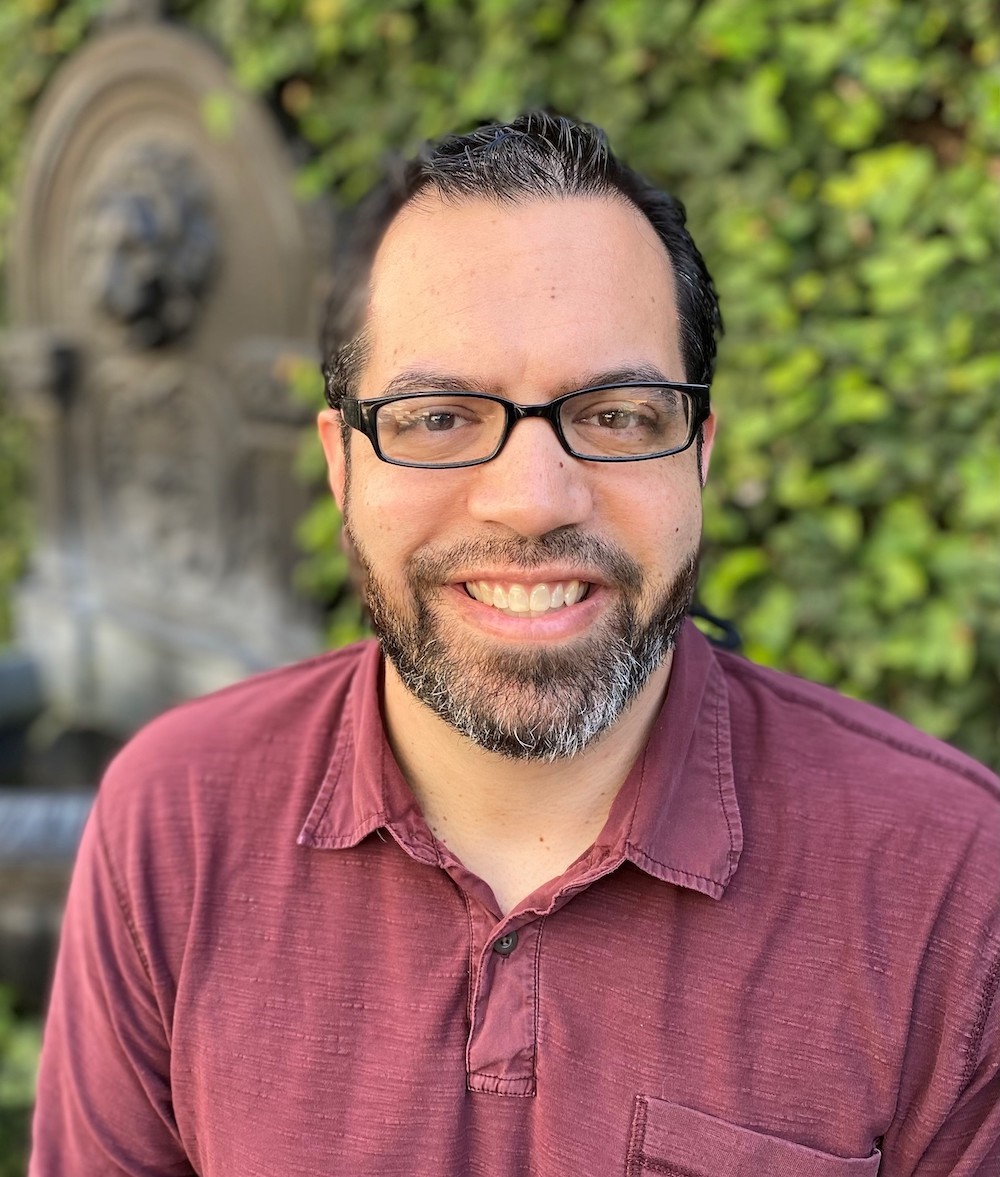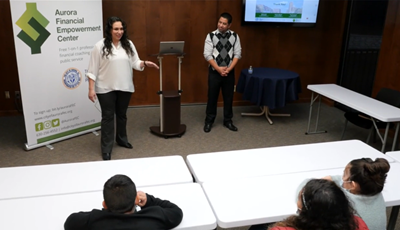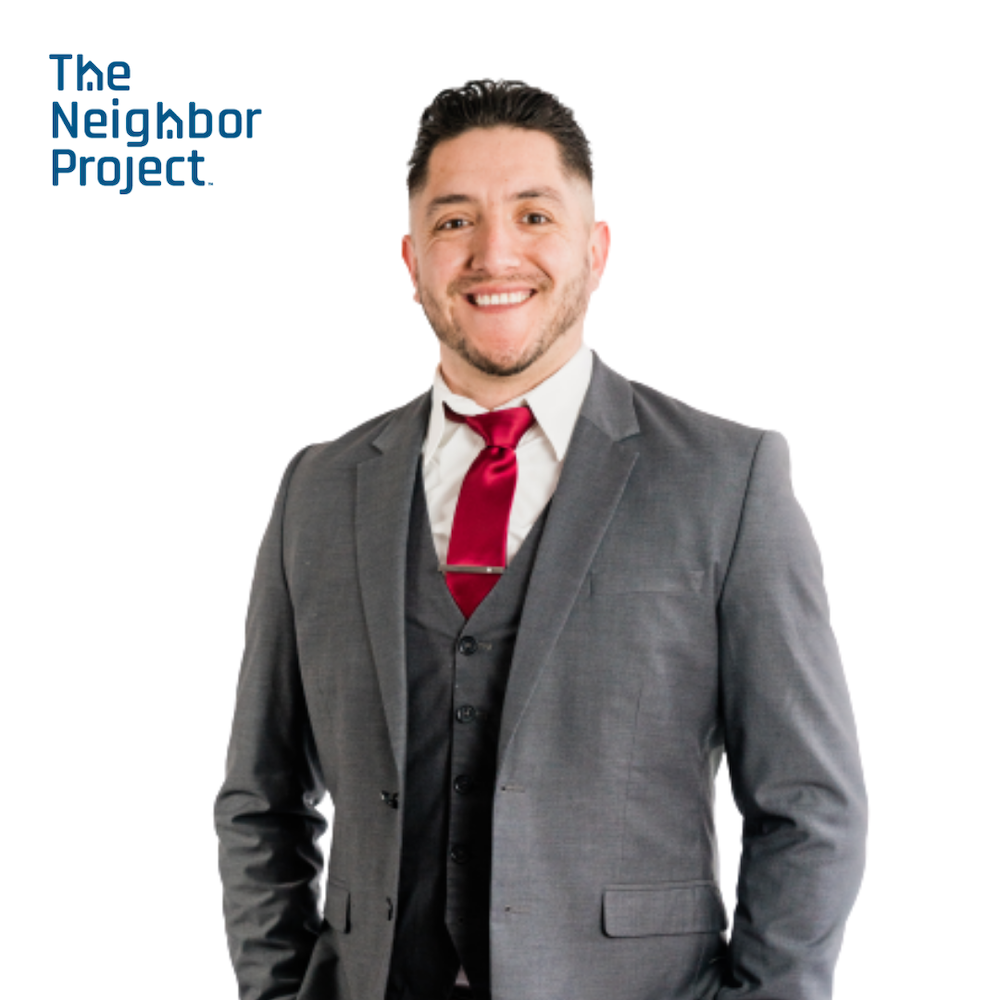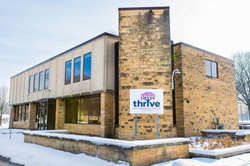In Aurora, too many households – 1 in 6 – have zero net-worth, says Rick Guzman, CEO of The Neighbor Project (TNP), a NeighborWorks network organization. His nonprofit formed in 2018 to do something about it, with a focus on helping low- to moderate-income individuals build financial health and wealth. Much of this takes place through the newly formed Aurora Financial Empowerment Center. Now in its second year of operation, the center has already served 672 families.

Guzman, who is Filipino-American, says he always identified with the people of Aurora, a more diverse community than Naperville, the Chicago suburb where he grew up. He attended church in Aurora, where the Latinx population has continually grown. His congregation spoke Spanish (43% of Aurora identifies as Hispanic and/or Latinx), spurring him to learn the language. After college, he moved to Aurora, working at the state and local government and starting a nonprofit, Emmanuel House, so families who didn't have the tools they needed for homeownership could get those tools.
He started by working with a Cuban refugee family in his own home, renting out the basement
 apartment and putting the family's rent into a savings account for a future down payment. The family bought their own first home in 2007. Guzman used a similar model at Emmanuel House, helping 20+ families at a time. In 2016, Classy, a public benefit corporation providing technology that enables donations, to nonprofits, named Emmanuel House one of Top 100 Most Innovative Social Change Organizations.
apartment and putting the family's rent into a savings account for a future down payment. The family bought their own first home in 2007. Guzman used a similar model at Emmanuel House, helping 20+ families at a time. In 2016, Classy, a public benefit corporation providing technology that enables donations, to nonprofits, named Emmanuel House one of Top 100 Most Innovative Social Change Organizations. The Neighbor Project, a merger of Emmanuel House and the Joseph Corporation, is open to all, but focuses on helping communities of color build wealth. The organization's name is a nod to Guzman's faith, and the concept that we are called upon to love our neighbors as we would ourselves. "That means believing in your neighbor enough to invest in them the way you'd want to be invested in yourself," he adds
Homeownership is a common goal for the people The Neighbor Project works with, particularly among the Latinx population and first-generation immigrants. "People were interested," Guzman says. "But as we worked with them, we realized that for many people who were interested in homeownership, they just weren't in a place where it was a realistic option."
They had nonexistent or bad credit, he says, and a lack of financial history. Some didn't know where to start with the U.S. banking system. "We realized we needed to take a step back and really work on financial wellness."
The Financial Empowerment Center became the place to do just that. With matching funds from the city, TNP opened the center in 2020, in the midst of a pandemic, where people in tough financial situations saw further decline.
Working together to build finances
David Blancas, program manager at the Aurora Financial Empowerment Center, came to his post after teaching – he'd worked at Family Focus and taught math and personal finance in the public schools. He

Blancas says COVID-19 heightened the need for one-on-one financial counseling and coaching. So far, 60% of the clients served have been Latinx. But leaders are quick to say their goal is to help anyone who needs it. While staff members all speak both English and Spanish, they have access to translators representing 250 languages. Says Blancas, "We want to eliminate all of the barriers."
Most clients are between the ages of 21 and 54. Some are buying their first homes. Some are refugees, establishing roots in a new country. Blancas says the center measures success with five outcomes:
- Reduced debt. The organization's goal is to help families reduce their non-mortgage debt by 10%.
- Increased savings.
- Improved or established credit.
- Access to banking. "A lot of our clients want to buy a house. They want to get a loan or go to school, and they need that relationship."
- Access to public support systems, including rental assistance. "We don't give out financial help, just advice," Blancas says. "But we have a lot of partnering organizations that do. We want to connect people to those kinds of resources."
In the 18 months the center has been open, their clients have increased their collective net-worth by over $1.2 million by reducing debt by more than $800,00 and increasing savings by $400,000. Another goal, Blancas says, is to keep track of those clients so they'll have the data that shows how they're helping.
Aurora residents Maria and Clemente want to buy a house. But when the visited the center, Maria says, "we were told we had too much debt." Their financial coach has been helping them go through the process of getting out of credit card debt. And they're now on a path to buy a home, hopefully within a year. Clemente told The Neighbor Project staff that at the rate they're going, "I think it will be earlier."
According to NeighborWorks America's Housing and Financial Capability Survey, credit is a leading cause in homeownership and wealth disparities between Black, Hispanic or Latinx and white Americans. But a large share of the population is looking for guidance on their path to home ownership, with more than half saying they are willing to take classes to improve their financial situation.
 Families – particularly Latinx families – have faced hard times during the pandemic, Blancas says. "A lot of people accrued a lot of debt. They've used the savings they had to stay afloat. We are seeing people in this hole they dug themselves into, through no fault of their own. How do we bring them out of that?"
Families – particularly Latinx families – have faced hard times during the pandemic, Blancas says. "A lot of people accrued a lot of debt. They've used the savings they had to stay afloat. We are seeing people in this hole they dug themselves into, through no fault of their own. How do we bring them out of that?" The answer is education, though it takes time. They plan for the Financial Empowerment Center to be around for a long time, even after the matching grant from the city ends in 2022. Several local banks have already pledged grants to continue this work into 2023 and beyond. "We've seen a great response and appreciation of the work from multi-sector stakeholders and partners," Guzman says. And that means the work can continue.

